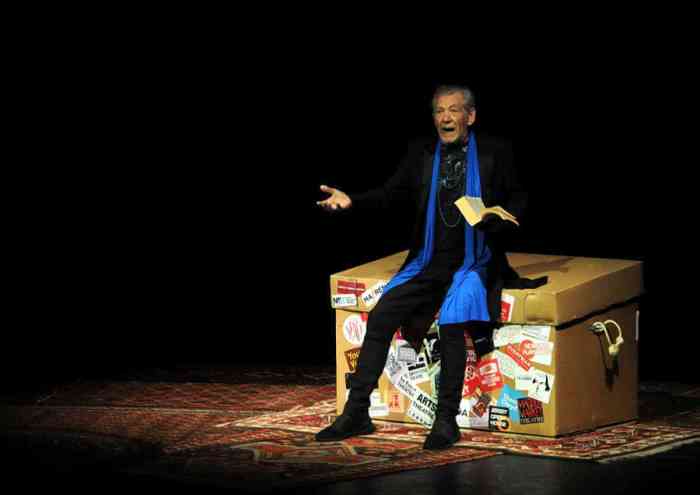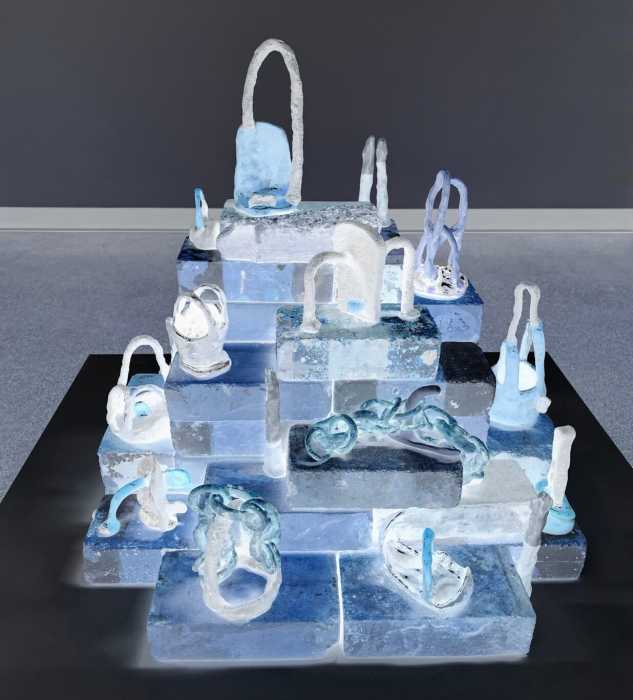 Playwright Peter Shaffer (“Equus,” “Amadeus”), who died at 90 last June, got a star-studded memorial service at the American Airlines Theatre on April 3 hosted by Alec Baldwin, who played the lead in “Equus” at the Guild Hall in East Hampton in 2010. The memorial was graced by in-person tributes from playwright John Guare and actors Juliet Mills, Jane Seymour, and Sam Underwood, videotaped tributes from London theater luminaries, and a bittersweet rendition of “I’ll Be Seeing You” from Christine Ebersole, currently on Broadway in “War Paint.”
Playwright Peter Shaffer (“Equus,” “Amadeus”), who died at 90 last June, got a star-studded memorial service at the American Airlines Theatre on April 3 hosted by Alec Baldwin, who played the lead in “Equus” at the Guild Hall in East Hampton in 2010. The memorial was graced by in-person tributes from playwright John Guare and actors Juliet Mills, Jane Seymour, and Sam Underwood, videotaped tributes from London theater luminaries, and a bittersweet rendition of “I’ll Be Seeing You” from Christine Ebersole, currently on Broadway in “War Paint.”
But the evening was most remarkable for how it fleshed out Shaffer’s life as a gay man — something that went unmentioned in his New York Times obituary. The UK Guardian’s Mark Lawson did mention he was gay, but noted Shaffer was part of “a generation of writers who, even after the removal of the legal jeopardy to homosexuality, neither wrote about the subject directly nor spoke about his private life in interviews.”
Kevin Shancady, one of Shaffer’s three long-term male partners, wore a rainbow tie and said he was there to talk about the late playwright’s “intimate” side. The other two of Shaffer’s partners, he said, died of AIDS, including Robert Leonard, a theatrical voice teacher, whose 1990 passing was honored by the playwright leaving two-fifths of his £1.7 UK estate to the Terrence Higgins Trust, Britain’s leading AIDS charity.
Late playwright’s gay life embraced in star-studded tribute at American Airlines Theatre
Shancady also talked about the unique role “Equus” played in dramatizing psychiatry and capturing the keen interest of its practitioners when it was written in 1973, just as they were considering removal of homosexuality from their index of mental disorders. The play itself dealt with a teen male passionately into horses, several of whom he blinds after they witnessed him trying to have sex with a girl. While the boy was seeing a shrink because he committed a heinous crime, the psychiatrist struggled with robbing him of his “worship” in order to give him a “normal” life. “Aversion therapy” for homosexually oriented people was a common psychiatric practice in those days.
Ian McKellen, who played Salieri in “Amadeus” on Broadway, led the tributes from London, standing on a street where he said, “There were an awful lot of homosexuals on this block. Peter lived here with his boyfriend, and I lived with my boyfriend, and Alan Bates was down the block with his boyfriend.” Simon Callow, another out actor who was the original Mozart in “Amadeus” at the National Theatre in 1979, said Shaffer “appealed to the audience to be part of the event.” David Suchet, who played Salieri in a revival, talked about how he got Shaffer to rewrite the ending, one of several stories about the playwright revising new works as they were being rehearsed as well as older plays in revival.
Attendees were also treated to a performance of an extended scene from Shaffer’s “Royal Hunt of the Sun,” which has not played on Broadway since 1965 when it starred Christopher Plummer as Pizarro conquering the Incas who worship a sun god to the horror of the invading “Christians.” The play contains the line, “What is a god but what we know we can’t do without?” For those of us who worship in playhouses, Peter Shaffer was one of those creative people we could not do without.


































